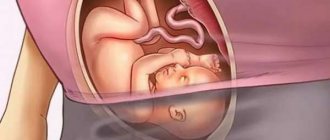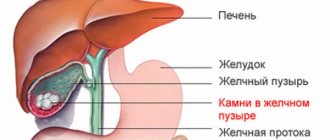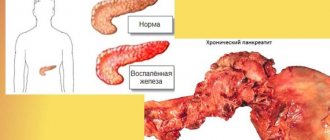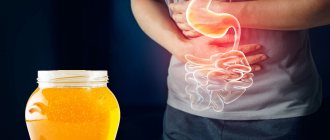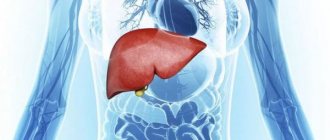You feel strange after a holiday feast due to bloating and gas. What to do if your stomach is swollen for the third day? Of course, it’s good that you don’t have to go to work, but you still want to get rid of flatulence as quickly as possible. If the cause of bloating is a dietary disorder, it can be dealt with at home. But if the bloating does not go away after a bowel movement, you have abdominal pain or nausea, you most likely need to see a doctor.
Bloating usually occurs as a result of air trapped in the stomach or intestines. Air enters the stomach when swallowed during each meal or water. And the air in the stomach and intestines is produced by trillions of bacteria that live inside and help digest food. Stomach air causes heartburn, and intestinal air causes flatulence.
Almost all people, even the most prim and glamorous, hit the gas about twenty times a day. If you work in an open space, hundreds of silent but killer aromas fly past you between nine in the morning and five in the evening (another argument in favor of working from home).
There is nothing supernatural about bloating that regularly occurs after overeating or eating quickly. However, in rare cases, prolonged bloating may indicate a more serious problem, such as intestinal obstruction or fluid collection (instead of air) due to liver disease or ovarian cancer.
Advertising
Causes and symptoms
Causes:
- Air entering the intestines.
- Drinking carbonated drinks.
- Excretion during digestion.
- Consumption of easily digestible carbohydrates.
- Poor nutrition.
- Eating plenty of fiber and starch.
The reasons can be completely different. Some are dangerous, others are not. Some pass through belching, others due to the release of gases through the anus.
When the stomach is bloated, the first thing that appears is a feeling of heaviness. Pain comes. They can be aching, stabbing, or cramping. These pains tend to go away after the gases pass. When the stomach is bloated from milk, nausea often occurs. There is constipation or diarrhea. With bloating, belching often occurs, leaving behind an unpleasant aftertaste. Loss of appetite may occur. Sometimes there is even the appearance of a nasty odor from the mouth.
All human insides are interconnected. They are controlled by a single center - the nervous system. All organs are connected by special nerve branches.
Because of this, bloating of the stomach can lead to serious consequences in the form of diseases of other organs. Heart pain, shortness of breath, headaches, sleep disturbances, mood changes, feeling unwell and weakness may occur. If you pass gas regularly, everything is still normal. They may even be accompanied by loud sounds. If they do not go away, then completely unpleasant, often painful, sensations appear. This condition should cause concern and an urgent trip to the doctor.
How to eliminate diarrhea in children
Diarrhea in children
Lactazar can be used to treat children. This drug contains an enzyme that is necessary for the digestion of dairy products. The product promotes the breakdown of milk sugar.
What to do if a digestive disorder has been identified in a baby? The pediatrician recommends that the mother purchase special formulas that do not contain lactose.
Diarrhea occurs due to the fact that the baby is fed the wrong formula. If intense diarrhea occurs, you should consult a specialist. A baby's diarrhea after drinking milk has a sour smell. The stool takes on a characteristic green color.
For diarrhea due to lactose deficiency, therapeutic fasting for 12 hours helps. To replenish lost fluid, you need to give your baby a rosehip decoction. The development of dehydration can be prevented by using rehydration medications (Regidron, Hydrolyte).
To strengthen the stool, prepare rice water for your child. It should be given 100 ml 3 times a day. If signs of diarrhea appear, breastfeeding should not be stopped. Most likely, the quality of the milk has nothing to do with it. The baby simply feeds on the milk in the front of the chest.
It has too many carbohydrates and not enough fat. The milk at the back of the breast is thicker. Diarrhea will stop if you give your baby the opportunity to suck the milk completely.
Allergy to cow's milk is detected in 2% of children. In this case, the baby develops vomiting, chronic diarrhea and abdominal cramps. Rashes can be seen on the skin of children.
What diseases are there?
Enzyme deficiency is one of the main causes of bloating. When bloating appears after ingesting milk, you should think about its tolerance. This is common to most people over twenty-five years of age.
The enzyme for processing milk sugar (lactose) into simple carbohydrates (fructose, glucose) is lactase. Its production occurs in the small intestine. If there is a shortage of it, the milk is processed further (in the large intestine) and this is what leads to the appearance of a large amount of gas and bloating.
Dysbacteriosis is a disruption of the normal intestinal microflora. A healthy intestine always contains beneficial bacteria that help process food. If the number of these same bacteria is insufficient or, conversely, exceeds the norm, then putrefactive processes occur, which, in turn, lead to a large number of gas formations.
More terrible diseases can also interfere with the normal movement of gases through the intestines. These are obstacles that arise mechanically. These are tumors and intestinal obstruction. In this case, the disease manifests itself in a specific part of the intestine.
Bloating can also appear due to a violation of certain gastric activity - motor activity. This occurs due to the development of any infections or varicose veins. The most atypical cause of bloating is hysteria or another mental health disorder.
What to do
It is necessary to eliminate some foods from the diet, such as:
eliminating milk from the diet
exclusion of whey from the diet
- whole, skim and even powdered milk;
- whey, as well as nutritional supplements based on it;
- butter and various creams made from it;
- ice cream.
If a person feels stomach problems after eating dairy products, it is better for him to give them up. You can replace them with fermented milk and use:
- various yoghurts;
- cottage cheese and cheese;
- kefir and fermented baked milk.
It is incorrect to think that cheese is a dairy product. The amount of lactose in it is minimized, since it leaves with the whey. Thus, cheese can be classified as a fermented milk cheese.
All of the above products contain much less lactose than milk, so when consuming them, a person will not have pain in the stomach.
How to treat bloating?
It is not recommended to treat bloating from milk on your own or at home. A doctor's examination and a complete diagnosis are necessary. Regardless of the factor that caused the bloating, you will need a fairly strict diet. Fast food, bread and potatoes are strictly prohibited. To eliminate gases, it is recommended to use the following medications:
- Activated carbon;
- smecta;
- white clay.
If the cause of gas formation is a deficiency of a certain enzyme, it is prescribed in the form of special medications. You will need substances that restore the normal intestinal environment - these are probiotics and prebiotics. For pain in the intestines in the form of spasms, it is recommended to use tablets that suppress this spasm, for example, no-shpu. In any case, the medicine must be prescribed by a physician.
Product benefits
Benefits of dairy products:
- rich in vitamin A, B, C, D, K;
- calms down, relieves stress and neuroses;
- enhance the functionality of the central nervous system and brain;
- strengthen the musculoskeletal system;
- improve sleep;
- help in losing excess weight;
- improve skin condition;
- increase protein concentration in the body;
- reduce the acidity of hydrochloric acid;
- relieve vitamin deficiency;
- cleanse the body of harmful substances.
Milk reveals its beneficial properties if consumed in the afternoon and warm.
Onions and preventative nutrition
Many people enjoy dishes with onions, cooked or raw, loving their amazing taste. The dietary fiber contained in this product is not the main cause of bloating, intestinal cramps, gas and flatulence. The sulfur compounds and fructans (reserve polysaccharides) in raw onions can pose a particular problem for people with digestive disorders, even if they are consumed in small quantities.
Adviсe
- If you suspect that onions regularly cause bloating, pain and flatulence, simply avoid them.
- An alternative could be spices or herbs.
Atrophic gastritis with low acidity: diagnosis and treatment
The diagnosis of lactose intolerance is confirmed if pain, bloating, a feeling of fullness and diarrhea appear after drinking milk or products made from it.
There are medical tests to detect lactose intolerance. You can carry out the simplest of them yourself: do not eat foods containing milk sugar for several days. Then in the morning on an empty stomach drink 2 glasses of milk. If lactose intolerance exists, after some time its clinical manifestations will appear: flatulence, cramping abdominal pain, diarrhea.
What to do if you swell after drinking kefir?
According to nutritionists, in the absence of contraindications, you should not completely abandon kefir. This is a very important and useful product, which is practically impossible to do without. You need to review your diet and follow the following rules:
- Perhaps indigestion is caused by too much fat in the drink. Choose packaging that indicates a maximum of 1%. Low-fat kefir is not as tasty, but it retains all its beneficial properties;
- You need to eat in fractional portions, at least five times a day. In this case, you should drink kefir either an hour before a meal or 40 - 50 minutes after a meal;
- Eliminate fatty and fried foods from your diet, give preference to boiled and stewed foods. Kefir goes especially well with stewed vegetables;
- You should not drink cold kefir - it should be at room temperature or slightly warmed up. A cold drink can cause bowel irritation;
- If the symptoms of flatulence cause severe discomfort, you can take absorbents (for example, activated carbon).
What happens to milk when it enters your stomach
When milk enters the human stomach, the curdling process begins. In other words, loose flakes of protein and fat fall out of milk under the influence of hydrochloric acid of gastric juice.
The stronger the acidity of the gastric juice, the faster the curdling process occurs - the effect of gastric juice on the milk - accordingly, the larger and denser the flakes that fall out are formed.
Further in the stomach, the curdled milk separates into cottage cheese and whey, which is also sour. If at this time there are particles of any other solid food in the stomach, for example, you decide to wash down your lunch with milk, the flakes that fall out of the curdled milk envelop these particles and isolate them from the action of gastric juice for a long time.
This factor slows down the process of food digestion, which will not resume until the protein layer covering the food particles in the stomach is digested.
How to drink milk correctly
The daily intake of milk is about two glasses to provide the body with all useful substances. Therefore, if there are no obvious contraindications to drinking milk, there is no need to refuse it.
Raw milk can be boiled or purchased pasteurized without lactose. But at the same time it will contain less nutrients.
If individual intolerance is observed and your stomach hurts from dairy, then you should definitely consult an allergist or gastroenterologist. On the pages of our website you can find out a lot of useful information about the functioning of the digestive organs.
Wheat can be dangerous
Wheat contains gluten, and US Food and Drug Administration (FDA) research shows that it is a common source of digestive problems. Despite the health risks, it is difficult to live without many of the wheat-containing foods that make up most people's diets:
- pizza,
- cakes,
- cookie,
- waffles,
- pasta,
- bread, etc.
People who are hypersensitive to gluten should avoid these products and some others that contain wheat, oats, barley, and rye, which contain gluten. Abdominal pain, diarrhea, flatulence and bloating are just some of the side effects of eating foods high in gluten.
Instead of products made from wheat and other grains containing gluten, we recommend more often including in the diet menu:
- quinoa;
- buckwheat;
- brown rice
Apples are not good for everyone
The old saying about eating one apple every day to avoid needing to see a doctor is absolutely true for many people. The democratic fruit is loaded with antioxidants, vitamin C, and fiber, giving it tremendous health benefits.
But some people (there are quite a few of them!) experience stomach problems when eating apples. Very often it simply does not occur to them to place their favorite fruit in the category of undesirable foods.
Apples contain fructose, which combined with their high fiber content can sometimes lead to digestive problems and bloating. Fructose in many people ferments inside the colon, causing excess gas to build up.
Adviсe
- Cooking apples will help reduce painful side effects.
- Those who constantly experience bloating and other unpleasant symptoms after eating apples in any form should replace them with blueberries, oranges, strawberries or grapefruit.
Properties of milk
Milk is essential for the body at any age. If you regularly consume it, your body will get:
- Natural vitamins – A, D, C, K;
- Calcium, which is necessary for bones, teeth, central nervous system and brain;
- Vitamins B1 – thiamine, B2 – riboflavin, B9 – folic acid;
- Magnesium and phosphorus;
- Sodium and iron;
- Iodine and ash.
Calcium will help reduce body fat and prevent the development of osteoporosis. In women, bones can become fragile due to hormonal changes during menopause.
https://www.youtube.com/watch?v=ytpolicyandsafetyen-GB
Vitamin B2 allows you to maintain youthful skin for a long time. Because of all these properties, it is not recommended to exclude milk from your diet.


